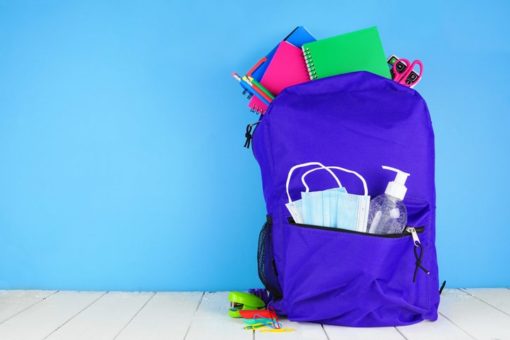Around the country, kids and teens of all ages are preparing to return to school after the summer break. The start of school each year can be exciting for many: new classes, teachers, friends, and back-to-school shopping for clothes and supplies. However, this year’s return to school is unlike any other—for many, this year marks a return to school in person after a year of virtual learning at home. The COVID-19 pandemic created a new normal for education, with at-home learning for most students. Maybe you had a designated room for virtual classes, a special desk in your family room, or perhaps your school year was primarily experienced using a laptop in bed. Whichever way you attended virtual school, there’s no doubt that a return to school in person will be a significant change in environment and routine for the upcoming year.
When you are in recovery from an eating disorder, the transition away from the home environment and into the classroom can stir up feelings of both relief (i.e., finally being around friends and peers) and anxiety (i.e., eating around others, body image concerns, etc.). Additionally, the transition from learning virtually to attending school in person is likely going to bring a drastic shift in daily routine, which can feel like an obstacle in recovery. Here are a few strategies to use in maintaining your eating disorder recovery during these upcoming transitions:
1. Support your physical comfort at school.
Recovery from an eating disorder means inevitable periods of time where you feel uncomfortable in your body. For school-aged kids and adolescents, this often coincides with the normal physiological changes that puberty brings and can result in increased anxiety around the way your body feels and looks. Fortunately, there are steps you can take to promote a better sense of comfort in your own skin. Start by wearing clothing that makes you feel good and comfortable. Choose clothes in your favorite colors, with characters or patterns that make you happy, made with soft comfy fabrics. Wear clothes for the body you have, not the one a disordered voice says you should have. In addition to clothes, request accommodations for seating in classrooms if needed. If you’re not comfortable asking, have a parent or guardian talk to a teacher for you. You deserve to be physically comfortable in all environments, and the classroom is no exception.
2. Meet your nutritional needs at school.
Food is a topic that can increase anxiety as you overcome an eating disorder, and this stress can happen when you eat meals with your peers. With school lunches back in person, it will become important to anticipate this anxiety and create strategies to work through it. Depending on where you are in treatment, it may be helpful to work with a registered dietitian to customize a plan for your own individual needs. If you’re in an earlier stage of eating disorder treatment, this may involve having lunch and snacks that follow a structured meal plan to make sure you’re meeting your nutrient needs each day. If you’re well into your recovery journey, this may look like putting lunches together with foods you enjoy using Intuitive Eating principles. Work with your treatment team to determine what the best strategy will be for your recovery.
3. Get to know your school counselor.
Many schools have counselors available for students, and this is a great resource to take advantage of in your journey to eating disorder recovery. Many students will be facing anxiety surrounding the return to school in person, and the counselors are there to talk you through these feelings. In addition, a school counselor may be able to provide resources specific for eating disorder recovery and support that can be utilized in a school setting.
Find Eating Disorder Help When Going Back to School during the Pandemic
Returning to school can be a stressful event, especially as we continue to navigate a pandemic. It’s important to make use of resources that support your individual needs. Focus on things you can do to make yourself comfortable and confident in maintaining your eating disorder recovery through the transition back to in-person school, and don’t be afraid to reach out to a counselor or your treatment team when you feel you need extra support. If you are struggling at all during this time, contact Center for Discovery for additional eating disorder help and resources.
